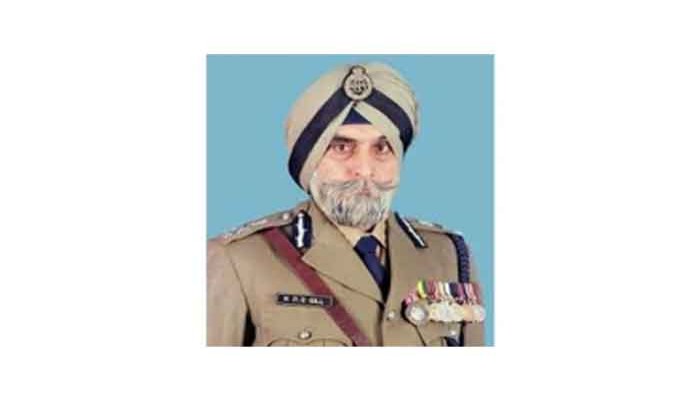Remembering KPS Gill: the Indian 'Super-Cop'
- In Current Affairs
- 09:32 AM, May 31, 2017
- Ranabir Bhattacharyya
KPS Gill, the former Director General of Punjab and Assam passed away on last Friday and it marked the end of an era. He died of a sudden cardiac arrest. An upright police officer all throughout his tenure in various capacities in Assam, Punjab and Chattisgarh, KPS Gill won laurels as well as criticism in his career.
KPS Gill joined Indian Police Service (IPS) in 1958. He was assigned the North-Eastern states of Assam and Meghalaya. At that time Assam was reeling under the Bongal Kheda movement, an ethnic cleansing of the Bengalis. KPS Gill as the Inspector General of Police (IGP) of Assam took a pro-active no-nonsense approach to tackle the precarious situation. Interestingly, this Bongal Kheda movement aka Assam agitation took a violent turn in the 60's. KPS Gill in his capacity as the IGP took a measured approach to curb the bloodshed. Although KPS Gill was accused in the murder of Khargeshwar Talukdar, a Barpeta district leader of All Assam Students’ Union (AASU) and of the first of 855 martyrs of the agitation against illegal immigrants from 1979 to 1985, his reputation was intact in spite of continuous disturbances in the Bramhaputra valley.
1984 marks a very important juncture of Indian political history as it pinpoints to the Khalistani movement. In September 1984, when KPS Gill was summoned to Punjab; the state was still reeling under the impact of Operation Blue Star and the assassination of erstwhile PM Indira Gandhi and subsequent riots all over North Indian states. In his four stints in Punjab, KPS Gill helped the state to regain much needed stability. There is no denying the doubt, his proactive stance in the Khalistani disturbance was pivotal to the much needed peace. In his second stint he came back as Inspector General of Central Reserve Police Force and IG Border Range, Punjab Police. In the third stint, he was appointed the Director General of Police, replacing Julio Ribeiro.
His biggest success in Punjab was the Operation Black Thunder episode. KPS Gill was careful not repeat the same mistakes as Operation Blue Star, which faced stiff criticism from certain quarters. In Operation Black Thunder 67 terrorists surrendered and 43 others were killed but least damage was incurred upon the Golden Temple, the holiest shrine of the Sikhs. Not only was the Sikh pride was restored but KPS Gill also handled the whole situation very smartly. KPS Gill was awarded the prestigious Padma Shri award, India's fourth highest civilian award in 1989 for his exemplary work in civil services. By the time he retired in December 1995, peace was restored in Punjab thwarting Khalistani terrorism to a considerable extent.
Even after retirement, his huge experience in counter-terrorism was utilized, mostly in Chhattisgarh. He was an advisor the Chhattisgarh government. His stint in Chhattisgarh was an eventful and in one of the interviews he categorically said that erstwhile CM Raman Singh urged him to relax and enjoy his salary. Nevertheless in various episodes of crisis, the advices of KPS Gill were sought by various governments.
KPS Gill's career wasn't all about achievements; rather he was criticized time and again for collateral damages that his stints in Assam and Punjab caused. In 1988 KPS Gill was accused of molesting IAS Officer Rupan Deol Bajaj during a part. In 2005, the Supreme Court convicted KPS Gill and he had to pay a fine of Rs 20000 and thankfully the jail sentence were reduced to probation, giving him much needed relief. KPS Gill was the President of the Indian Hockey Federation (IHF) for more than two decades. Probably he didn't have the tactical acumen or patience to handle the politics of the hockey fraternity. Nevertheless, KPS Gill always made an effort echoing “The turban must always be held high.”
The name Kanwar Pal Singh Gill aka KPS Gill will always be remembered as a hall mark in the history of Indian police service. In an era of global terrorism, the method or approach of KPS Gill adopted in Assam and Punjab remains a case study for the Indian government for tackling hooligans and terrorism in Jammu & Kashmir and other states.







Comments